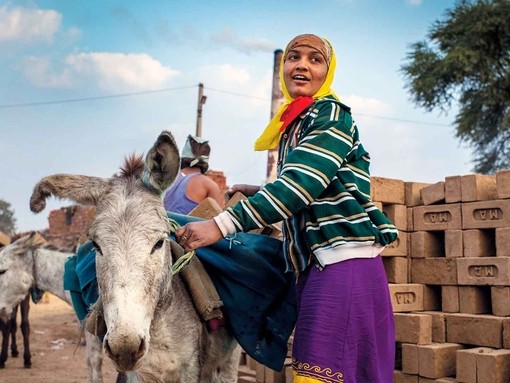
A voice for the silent partner
We work with and influence governments and legislative bodies all across the world to improve the safety and welfare of donkeys and mules.
We champion the contribution donkeys make to communities around the world and advocate for their efforts to be recognised and their needs met by working with governments, the media and other non-governmental organisations (NGOs) worldwide.
Advocacy is vital to make sure that authorities take responsibility for animal issues including policy, legislation and enforcement, education and awareness, research and training. By seeking structural improvements in donkey welfare at scale with key allies and decision-makers, we can change the lives of far more donkeys than we ever could alone. This not only improves the welfare of donkeys but also the families that rely on them.
Our advocacy team is working with organisations including the World Organisation for Animal Health (OIE), the World Bank, the United Nation (UN), the Food and Agriculture Organisation of the United Nations (FAO) and the European Union.
Our advocacy work is harnessed to the United Nations’ 17 Sustainable Development Goals, identified to alleviate global poverty, hunger, illiteracy and disease. The role working donkeys play in strengthening livelihoods, accessing water, empowering women and enabling education cannot be overlooked.
Many of the world’s most urgent SDGs can be achieved by cost-effective and simple solutions that benefit some of the poorest and most vulnerable people in society. The most striking example is the welfare of working equids (horses, ponies, donkeys and mules).
The vast majority of the world’s equid population are working animals. An estimated 112 million working horses, ponies, donkeys and mules are essential to the livelihoods of some of the poorest communities in Africa, Asia and South/Central America. The traditional beast of burden, their socio-economic value is often taken for granted, with people taking advantage of their hardworking traits.
Research has highlighted that rural communities across the world rank working equids as their most important livestock, due to their capacity to support income generation.
In rural areas, working equids are often used in farming and as transportation: they pull ploughs and carts, deliver goods to market, herd livestock and collect water from wells. In urban areas, they are mainly used in construction, transport of people and goods, and refuse collection. By enabling their owners to participate in work, they boost economic capacity, which is often used towards the cost of education that promotes gender equality by allowing women to be economically active.
Simple interventions can empower owners to keep their working equids healthy and ensure their continued productive benefit. These interventions include improved access to good, affordable harnessing, hoof care and veterinary interventions, and, above all, the empowerment of their owners with better knowledge of equine management.
Our global work to help donkeys
After years of advocacy by animal welfare organisations, the United Nations has adopted a resolution formally acknowledging the vital role of working animals in disaster risk reduction.

We attended the first East Africa assembly meeting since the African Union’s pledge to ban the donkey skin trade to urge implementation and action.

We’ve joined forces with Emirates, the world’s largest international airline, to co-create guidelines which highlight the risks posed by the donkey skin trade and its association with serious and organised criminal activity.

Follow Janneke Merkx to the United for Wildlife Summit in South Africa, as she dispels the myths around campaigning and explains more about all the tools needed to create lasting change for donkeys.

In our expert interview series, we learn what it takes to be an animal rights campaigner with Dr Patricia Tatemoto and understand how she’s advancing a ban on the donkey skin trade in Brazil.

This month, we called on Brazil to pass landmark legislation during the G20 summit that would prohibit the slaughter of their culturally important and genetically unique donkeys.

